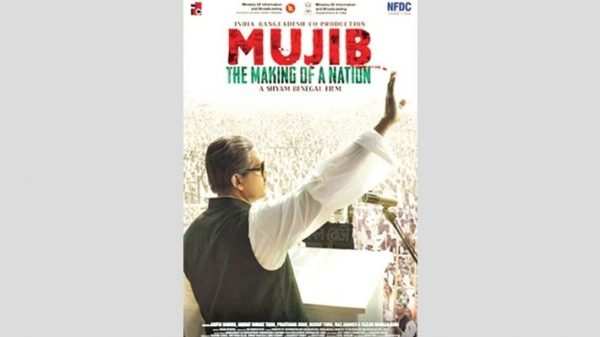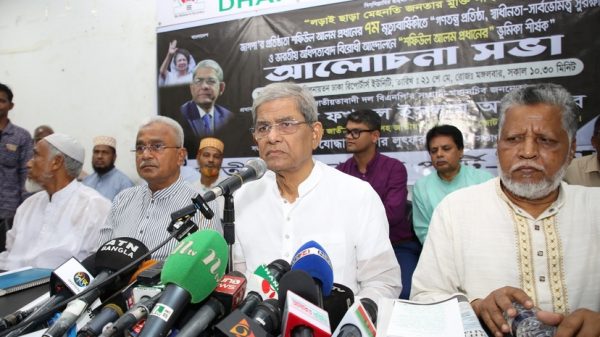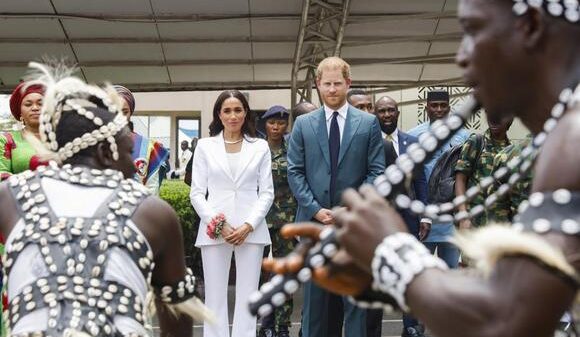Shawesh Desk:
Shyam Benegal’s just-released directorial venture “Mujib: The Making of a Nation” reminds cine lovers of an old English idiom – Don’t judge a book by its cover.
The much-discussed first trailer of the movie, released on 19 May last year at the Cannes Film Festival, turned down the optimism that the launch of making a biopic about Bangabandhu Sheikh Mujibur Rahman had permeated. But the film released on Friday has satisfied most people, conquering all worries and doubts.
It is nearly impossible to portray the eventful and epic life of an exceptionally extraordinary figure like Bangabandhu in a certain time frame, and the movie, jointly produced by Bangladesh Film Development Corporation (BFDC) and National Film Development Corporation, India (NFDCI), is no exception in this regard.
The project, however, succeeded in reinventing the great leader’s towering personality as well as emotions as a Bengali family man, apart from illustrating his decisive role in Bangladesh’s journey from the struggle for freedom to independence chronologically. In fact, Mujib’s role as an adorable son, a beloved husband, and an affectionate father as well as his plucky conversations with people related to the West Pakistani establishment get a preference in the movie.
Any biopic deals with the challenge of presenting a known story in an attractive and believable way. Atul Tiwari and Shama Zaidi should get due credit for penning a compact script that accumulates the required attributes to offer the audience the taste of a full-length feature film instead of a documentary.
The audience initially goes through a feel-good experience and later gets overwhelmed with intense emotion. The background music with traditional folk flavour, coupled with the regional dialects of southern Bangladesh, brings characters closer to the hearts of the audience. In this case, music director Shantanu Moitra and Bengali dialogue writers Anam Biswas, Gias Uddin Selim, Shihab Shaheen and Sadhana Ahmed have done the magic.
The use of film scores in “Mujib: The Making of a Nation” is really impressive. The signature song “Ochin Majhi” sets the tone in the beginning, while the wedding song “Ki Ki Jinish Enecho Dulal” showcases the rich variety of Bangla folk music. However, the last song with no music against the backdrop of the 15 August brutality could have generated more emotion.
Editor Aseem Sinha certainly spent countless tough hours arranging the necessary sequences in order and making the required adjustments within a length of two hours and 58 minutes as he was given raw footage of some 960 minutes! Nitish Roy and Pia Benegal also deserve appreciation for recreating different periods through art direction and costume design.
The biggest strength of the movie is its actors’ performances. Over 150 artistes, including 120 Bangladeshis and 30 Indians, put in their best efforts to make the project a success. Among them, at least 15 have won Bangladesh’s National Film Awards.
However, all have waited to see how Arifin Shuvoo plays the role of Bangabandhu. The 41-year-old star has stunned the audience through his hard work and dedication and proved that Benegal made the right decision by casting him after five rounds of auditions, rejecting 14 more shortlisted actors. His shift from Sheikh Mujib’s one age to another, carrying the features of the respective time and change in his mood and attitude as an affectionate father and uncompromising leader, has made it his career-defining performance.
Similarly, while depicting Sheikh Fazilatunnesa Mujib, Nusrat Imrose Tisha has dived deep into the character. Her eloquent performance has reflected Begum Mujib’s patience, confidence, and reading of politics as well as how she had always been the biggest strength of Bangabandhu.
Besides, Tauquir Ahmed as the swaggy protagonist’s mentor Huseyn Shaheed Suhrawardy has got enough space and utilised it perfectly to depict their guru-disciple relationship. Fazlur Rahman Babu could have got more screen time to portray the brutish features of Khondaker Mostaq Ahmad.
Chanchal Chowdhury as Sheikh Lutfar Rahman, Deepak Antani as Mahatma Gandhi, Raisul Islam Asad as Abdul Hamid Khan Bhashani, Rajit Kapur as Zulfikar Ali Bhutto, Tushar Khan as Manik Mia, and Siam Ahmed as Shamsul Haque have done justice to their roles. But Riaz Ahmed and Nusrat Faria have failed to depict the characters of Tajuddin Ahmad and Sheikh Hasina respectively.
“Mujib: The Making of a Nation” could have been a better film had it concentrated on some issues. Some old footage of the Bengal famine, the journey of refugees to India during the Liberation War, and an interview of Indira Gandhi could have been recreated through actors. In that case, it could have been a complete feature film.
The casting of a child artiste as Sheikh Russel seemed imperfect as Russel’s age in 1968-69 and later in 1975 looked the same! Besides, many of the characters were used only for passing shots and a big portion of the audience could not understand their identities.
Poor VFX work and prosthetic make-up are the weakest features of the big-budget movie (Tk83 crore). Bengali subtitle is another area where the team could have made more improvements by correcting spellings. Still, questions can be raised regarding the presentation of a few historical incidents and characters.
“Mujib: The Making of a Nation” is not a masterpiece, but it surely is a good film. With this, a biopic about Bangabandhu was finally made 48 years after his assassination. It could have been done much earlier. Hopefully, it will open avenues for making more artistic ventures on different aspects of his life.
























Leave a Reply